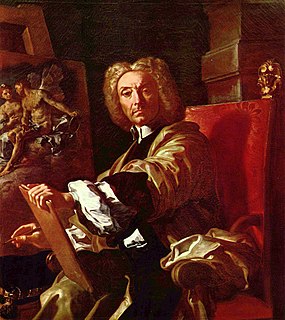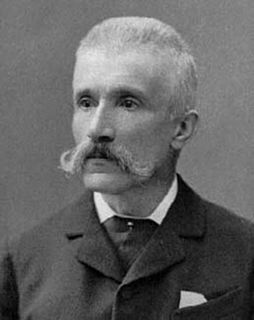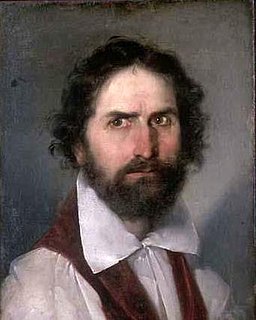
Cremona is a city and comune in northern Italy, situated in Lombardy, on the left bank of the Po river in the middle of the Pianura Padana. It is the capital of the province of Cremona and the seat of the local city and province governments. The city of Cremona is especially noted for its musical history and traditions, including some of the earliest and most renowned luthiers, such as Giuseppe Guarneri, Antonio Stradivari, Francesco Rugeri, Vincenzo Rugeri, and several members of the Amati family.

Sebastiano Conca was an Italian painter.

Antonio Luigi Gaudenzio Giuseppe Cremona was an Italian mathematician. His life was devoted to the study of geometry and reforming advanced mathematical teaching in Italy. He worked on algebraic curves and algebraic surfaces, particularly through his paper Introduzione ad una teoria geometrica delle curve piane, and was a founder of the Italian school of algebraic geometry.

Francesco Solimena was a prolific Italian painter of the Baroque era, one of an established family of painters and draughtsmen.

Sant'Andrea delle Fratte is a 17th-century basilica church in Rome, Italy, dedicated to St. Andrew. The Cardinal Priest of the Titulus S. Andreae Apostoli de Hortis is Ennio Antonelli.

Francesco Brioschi was an Italian mathematician.
The year 1627 in music involved some significant events.

Grazio Cossali, sometimes called Orazio Cossali was an Italian painter who worked in Brescia, Cremona, and Venice, active during the Mannerist or early Baroque periods.
Giuseppe Natali (1652–1722) was an Italian painter of the Baroque period, active mainly in Cremona and Lombardy.

Sebastiano Galeotti (1656–1746) was a peripatetic Italian painter of the late-Baroque period, active in Florence, Genoa, Parma, Piacenza, Codogno, Lodi, Cremona, Milan, Vicenza, Bergamo, and Turin.
Giovanni Battista Natali was an Italian painter of the late-Baroque period, active in his natal city of Piacenza, but also Savona, Lucca, and Naples, and finally Genoa in 1736.

Giuseppe Tortelli was an Italian painter of the late Baroque period, active in Brescia.

Nicola Amati, Nicolò Amati or Nicolao Amati was an Italian master luthier from Cremona, Italy. Amati is one of the most well-known luthiers from the Casa Amati. He was the teacher of illustrious Cremonese School luthiers such as Andrea Guarneri and Giovanni Battista Rogeri. While no clear documentation exists for their being apprentices in his shop, Amati may also have apprenticed Antonio Stradivari, Francesco Rugeri, and Jacob Stainer, as their work is heavily influenced by Amati.
Andrea Moretti is a former Italian rugby union player and now an assistant coach of Italy squad. He played as a hooker.
Tomasso Amici was an Italian sculptor active in Cremona in the late 15th century. He worked in the style of the thirteenth-century sculptor Bramanto Sacchi. He is known for having sculpted the reliefs in altar of St Nicolas (1495) in a Gothic style in the Duomo di Cremona, where he worked with Fra Mabila de Mazo.

Angiolo Achini was an Italian painter.

Girolamo Michelangelo Grigoletti was an Italian painter, active in a Neoclassical style.
Giuseppe Pellizoni, also called il Crescini, (1688–18th-century) was an Italian painter of the Baroque period, active mainly in Cremona and Lombardy as a quadratura painter.
Giorgio Picchi il Giovane was an Italian painter active in Rome, Cremona, Rimini, Urbino, and Urbania. He was either a pupil or follower of Federico Barocci.
This is an alphabetical index of people, places, things, and concepts related to or originating from the Republic of Venice. Feel free to add more, and create missing pages.












